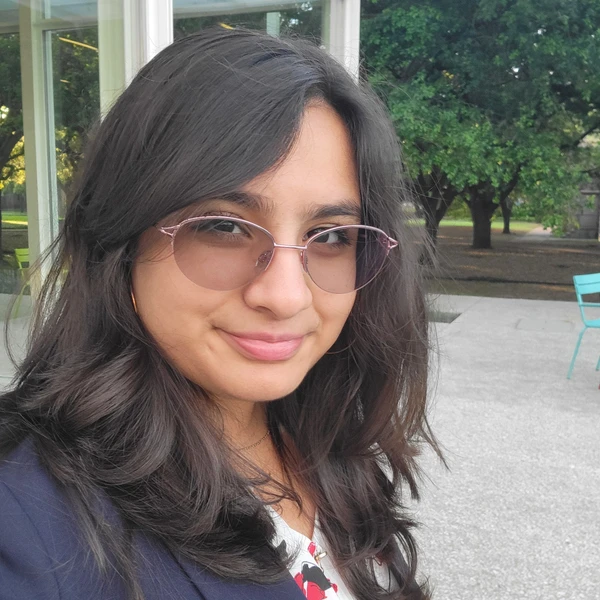
Hobbies and interests
3D Modeling
Coding And Computer Science
Piano
Aditi Gokhale
655
Bold Points1x
Finalist
Aditi Gokhale
655
Bold Points1x
FinalistBio
I’m Aditi, a high school student passionate about engineering, with interests spanning mechanical, chemical, and biomedical fields. Coming from a first-generation Indian-American background, I’ve developed a strong drive for excellence and a deep respect for hard work. I’ve led initiatives like Teach Her Today, competed at FRC Robotics World Tournaments, and co-founded my school’s Girls in STEM club. My research in machine learning for heart defect detection reflects my goal to apply technology to real-world health challenges. Now I study at Texas Academy of Math and Science, and I hope to pursue an engineering degree later while using innovation to make STEM more inclusive and impactful.
Education
Texas Academy of Mathematics & Science
High SchoolMiscellaneous
Desired degree level:
Doctoral degree program (PhD, MD, JD, etc.)
Majors of interest:
- Biomedical/Medical Engineering
Career
Dream career field:
Biomechanical Engineering
Dream career goals:
Research
Biomedical/Medical Engineering
University of North Texas — Undergraduate Researcher2025 – Present
Public services
Volunteering
Coastal Prairie Conservancy — Volunteer2021 – Present
Elevate Women in Technology Scholarship
When I first saw a fetal echocardiogram during a research internship, I didn’t just see a scan, I saw possibility. On the screen was a grainy, grayscale image of a baby’s heart, fluttering with life. But what captivated me wasn’t just the medical imaging itself, it was the algorithm analyzing it. A machine learning model was identifying potential congenital heart defects before birth, giving doctors a chance to intervene early and save lives. In that moment, I realized technology could do far more than power devices or automate routines, it could protect something as fragile and profound as a heartbeat.
Fetal echocardiography is not a new technology, but combining it with artificial intelligence represents a shift in how we approach care: proactive, precise, and deeply human-centered. As someone who grew up fascinated by both robotics and healthcare, and who watched a parent struggle with heart complications post-COVID, this intersection felt incredibly personal. It showed me that engineering doesn’t have to choose between logic and empathy. It can hold both.
That’s what inspires me: the idea that technology can extend not just capability, but compassion. For that matter, the advancement of prenatal and fetal care technology are a testament to what humanity can create when we choose to serve rather than simply build.
This experience has shaped the kind of engineer I want to become. I don’t just want to design machines, I want to solve problems that matter. I want to build tools that make healthcare more accessible, more intelligent, and more humane. Fetal echocardiography, enhanced by AI, showed me that even the most delicate lives can be safeguarded by the thoughtful application of science and compassion. That’s the kind of impact I hope to make, one heartbeat at a time.